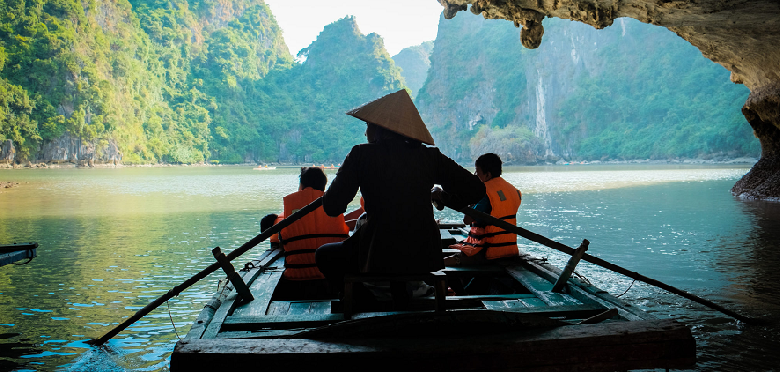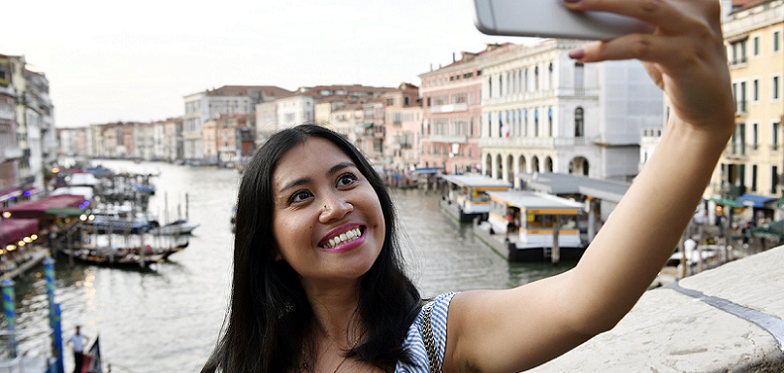
Traveling to new places can be a life-changing experience, allowing you to step outside of your comfort zone and explore different cultures and perspectives. But travel can also be a powerful tool for personal growth and discovery, providing opportunities to challenge yourself, learn new things, and gain a deeper understanding of yourself and the world around you.
Travel for Personal Growth and Discovery: An Overview
Travel for personal growth and discovery is a transformative experience that allows you to step outside of your comfort zone and explore new cultures, perspectives, and ways of life. By setting goals, choosing destinations and experiences that align with those goals, embracing the journey, and reflecting on your experiences, you can use travel as a tool to challenge yourself, learn new things, and gain a deeper understanding of yourself and the world around you. Travel for personal growth and discovery can help you expand your horizons, cultivate empathy and understanding, and live a more fulfilling and meaningful life.

Setting Goals for Personal Growth and Discovery While Traveling
Setting goals for personal growth and discovery is a critical first step when using travel as a tool for personal development. By identifying areas in your life that you want to improve, you can create a plan to achieve your goals through travel. When setting goals, it’s important to be specific and realistic, keeping in mind your budget, travel style, and time constraints.
Some examples of personal growth goals while traveling might include learning a new language, building self-confidence, developing a deeper understanding of a particular culture or historical event, or simply challenging yourself to try new things. Once you have identified your goals, you can begin to research destinations and experiences that align with them.
When setting personal growth goals for travel, it’s important to keep them realistic and achievable. This means taking into account your budget, travel style, and time constraints. For example, if you only have a week to travel, it may not be realistic to set a goal of becoming fluent in a new language. However, you might set a goal of learning basic conversational phrases or becoming more comfortable speaking in public by practicing with locals.
Once you have identified your goals, it’s important to research destinations and experiences that align with them. For example, if you want to learn more about a particular culture, you might choose to travel to a country with a rich history and cultural heritage, and visit museums, historical sites, and festivals. If you want to challenge yourself to try new things, you might choose to participate in adventure activities like hiking, rock climbing, or surfing.
By setting clear goals and focusing your travel experiences around them, you can ensure that your travel is not just a leisure activity, but also a transformative journey that helps you grow and discover new things about yourself and the world around you.
When you return home, you can reflect on your experiences and use what you’ve learned to integrate personal growth and discovery into your daily life. Traveling with purpose can lead to a more meaningful and fulfilling life, as you learn to appreciate the world and the people around you in a new and deeper way.

Choosing Travel Destinations and Experiences for Personal Growth
Choosing travel destinations and experiences that align with your personal growth goals is an essential step in using travel as a tool for personal development. When selecting destinations, you should consider cultural and social factors that can impact your personal growth and discovery, such as language barriers, customs, and local attitudes. You may also want to research destinations that have a rich history or cultural heritage, as this can provide opportunities to learn about different ways of life and gain a deeper understanding of the world.
When choosing experiences, it’s important to look for ones that challenge you and push you out of your comfort zone. This could mean trying new foods, participating in adventure activities, or engaging in conversations with locals. By stepping outside of your comfort zone and embracing new experiences, you can gain a greater sense of self-confidence and develop a deeper understanding of your own strengths and limitations.
You should also consider your budget and travel style when selecting experiences. Some experiences may require significant time and financial investments, such as volunteering or studying abroad, while others can be incorporated into more budget-friendly travel plans, such as staying in hostels or taking public transportation.
The goal is to choose destinations and experiences that are aligned with your personal growth goals and allow you to challenge yourself, learn new things, and gain a deeper understanding of yourself and the world around you. By choosing destinations and experiences that push you out of your comfort zone, you can develop new skills, increase your self-awareness, and gain a greater appreciation for the diversity of the world.

Embracing the Journey to Personal Growth Through Travel
Embracing the journey is a key element of using travel as a tool for personal growth and discovery. It means being open to new experiences and perspectives, and letting go of control and surrendering to the journey. When you travel with an open mind, you can discover new things about yourself and the world around you, and gain a greater sense of empathy and understanding.
To embrace the journey, it’s important to be flexible and adaptable. This means being open to unexpected changes in your travel plans, such as flight delays or cancellations, and finding new opportunities to explore and learn. It also means being open to meeting new people and engaging in conversations with locals, even if it’s outside your comfort zone.
Another important aspect of embracing the journey is being present in the moment. This means paying attention to your surroundings and fully engaging in the experiences that come your way. By being present and fully immersed in the experience, you can develop a deeper appreciation for the world and the people around you.
In addition, it’s important to maintain a positive attitude and focus on the opportunities for growth and discovery that travel can offer. When you encounter challenges or setbacks, try to reframe them as opportunities for learning and growth, and use them as a chance to develop resilience and self-awareness.
Embracing the journey is about being open to new experiences and perspectives, and recognizing the opportunities for personal growth and discovery that travel can provide. By letting go of control and surrendering to the journey, you can develop a deeper understanding of yourself and the world around you, and cultivate empathy and understanding that will serve you well both on the road and at home.
Reflecting and Integrating Your Travel for Growth Experiences
Reflecting on your travel experiences and integrating them into your daily life is an important final step in using travel as a tool for personal growth and discovery. By taking time to reflect on what you’ve learned and how you’ve grown, you can identify ways to apply these insights to your life at home and continue to grow and develop.
One way to reflect on your travel experiences is to keep a travel journal, where you can write down your thoughts and observations about your experiences. This can be a helpful way to capture your thoughts and feelings in the moment, and provide a record of your journey that you can look back on in the future.
Another way to reflect on your experiences is to share them with others. This could mean talking to friends and family members about your travels, or joining a travel community online where you can share your experiences with like-minded individuals. By sharing your experiences, you can gain new insights and perspectives, and continue to learn and grow even after your journey is over.
In addition to reflecting on your experiences, it’s important to integrate what you’ve learned into your daily life. This could mean incorporating new habits or practices that you discovered while traveling, or simply being more mindful and present in your day-to-day life. By integrating what you’ve learned into your daily routine, you can continue to grow and develop long after your journey is over.
Reflecting on your travel experiences and integrating them into your daily life is a powerful way to use travel as a tool for personal growth and discovery. By taking the time to reflect and integrate what you’ve learned, you can continue to learn and grow long after your journey is over, and live a more fulfilling and meaningful life as a result.
